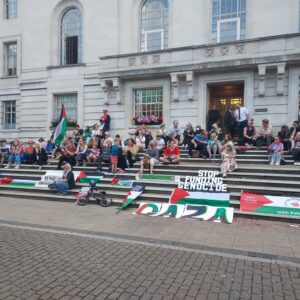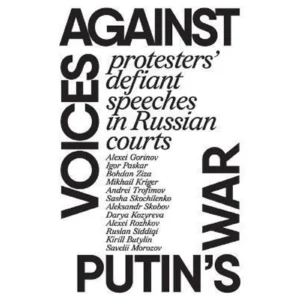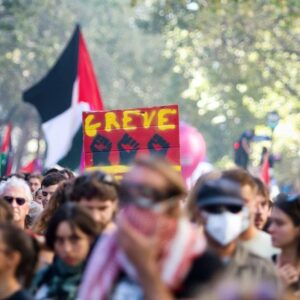Source >> International Viewpoint
Turkey’s President Erdogan came out ahead in the country’s presidential elections of 14 May 2023, which represented a kind of plebiscite to decide whether his autocratic regime would remain in place or not.
With 49.5% of the vote the AKP leader, in power for twenty years, is ahead of the opposition candidate Kemal Kılıçdaroğlu who only won 44.8% in this high-turnout election (88.9%). Many irregularities in favour of Erdogan’s allies have been denounced by the opposition. A second round is expected to be held on 28 May 2023. If Erdogan wins, his nationalist, Islamist and dictatorial regime will continue for another five years.
Reactionary bloc wins majority in parliament
The bloc formed around Recep Tayyip Erdogan is probably one of the most reactionary coalitions in the country’s political history. Already, since 2015 the AKP has been in alliance with the far-right Nationalist Movement Party (MHP). For this election Erdogan included in his bloc the Islamist party Yeniden Refah led by Fatih Erbakan, the son of the historic leader of political Islam in Turkey, Necmettin Erbakan, Another more Islamizing wing of the far right, the Great Union Party (BBP) is also part of this alliance. Also in this bloc was the HÜDA-PAR, the legal party of Hezbollah in Turkey, mainly established in the Kurdish region and which had in the 90s been used as an armed force by the Turkish Gladio against the PKK, committing many massacres.
In the parliamentary elections held at the same time, Erdogan’s alliance obtained 49.4% of the vote and 322 deputies (out of 600). If his votes are down from 2018 when he won 344 seats, Erdogan still has the majority in parliament that allows him to pass or prevent bills. The results obtained by the AKP are also falling, but the MHP, which was estimated to have fallen to 6-7%, almost returned to its 2018 level by reaching 10%. It thus seems that discontent has not been asserted in a change of bloc, but within Erdogan’s own camp. However, it should be noted that the AKP came out ahead in almost all the cities in the earthquake zone.
A defeat for the opposition
Facing this bloc was the Alliance of the Nation whose main party is the centre-left Republican People’s Party (CHP). The other “big party” in this bloc is Meral Akşener’s Good Party (IYIP) which is a split from the far right, representing a more secular nationalism than the MHP but trying to reposition itself towards the centre-right. Also part of this alliance are two parties whose leaders were prominent in the AKP, Ahmet Davutoğlu, former prime minister, and Ali Babacan former economy minister. Finally, the Saadet Partisi (SP), which comes from the historical current of Islamism from which the AKP emerged, also participates in this bloc, as well as another small right-wing party. Politically, this opposition alliance defends the return to a parliamentary regime (abolished by Erdogan in 2017 following a referendum) and the recovery of the economy by restoring neoliberalism with certain “social” features. With 35.4% of the vote the opposition bloc won 213 MPs, i.e., 24 seats more than in the previous election. The parties of Babacan and Davutoğlu as well as the SP, whose candidates ran under the CHP lists, seem to have contributed 3% to the CHPresults. These right-wing parties won 40 seats, only 23 more. The eligible places reserved for right-wing candidates on these lists had sparked debate among the CHP base.
Desire for “reconciliation” not a majority view
For the presidential elections, the candidate of this bloc against Erdogan was Kemal Kılıçdaroğlu, leader of the CHP. Given the importance of the presidency in the autocratic system, Kılıçdaroğlu’s victory was decisive for regime change. The latter led a campaign that embraced large sectors of the population. The fact that he is an Alevi Kurd (a minority current of Islam seen as a heresy by traditional Sunnism) had generated debates, many thinking that he could not unify the opposition. However, the CHP leader had led a campaign proudly proclaiming his Alevism and calling for a reconciliation of the population of Turkey in the face of Erdogan’s polarizing policies. It would seem, however, that the desire for “reconciliation” and a return to the rule of law and parliamentary rule is not the majority in Turkish society.
A third candidate, Sinan Ogan, ultranationalist and from the ranks of the MHP, won 5.1%. His small nationalist and anti-Kurdish bloc, which refused to support Kılıçdaroğlu, notably because the latter was also supported by the pro-Kurdish HDP party, now holds a crucial position for the second round. If he decides to support Erdogan, the latter’s victory becomes inevitable. If he calls for a vote for Kılıçdaroğlu, nothing is guaranteed because it seems difficult for him to manage to channel his voters en-bloc. His choice will depend on the negotiations where the positions that each side will promise to deliver to its alliance in the event of victory will be discussed. This may lead the opposition to adopt a more nationalist (and anti-immigrant) discourse to convince Ogan, which will however have the effect of alienating the Kurdish electorate, which represents nearly 10% of the vote, more than the maximum the Ogan base can bring.
HDP, TIP and the “Work and Freedom” Alliance
Another opposition alliance is “Work and Freedom”, constituted by the HDP (Peoples’ Democratic Party, a left-wing party from the Kurdish movement), the TIP (Workers’ Party of Turkey where our comrades of the Fourth International are active) and four other formations of the radical left. For the presidential elections, this coalition supported Kılıçdaroğlu. For the presidential elections, the HDP participated given the probability that it would be banned, as its “alternative party”, the Green-Left Party (YSP). The TIP did not stand in the cities where the HDP had a large majority (Kurdistan in Turkey) and in some where it risked losing MPs to the HDP and the CHP; it submitted lists in 52 cities out of 81. The fact that the TIP wants to run within the alliance but with independent lists in some cities is a subject that has given rise to a lot of debate, to which we will have to return. The TIP lists also included candidates from two Trotskyist currents, the Workers’ Democratic Party (IDP) and the Association of International Workers’ Solidarity (UID-DER).
The HDP-YSP won 8.8% in these elections, i.e., 3% less than in the previous elections. It is still too early to make consistent analyses, but it seems that support for Kılıçdaroğlu for the presidential elections has been understood as support for the CHP (in the parliamentary elections) and therefore votes have passed to this party. On the other hand, the 10% barrier (to enter parliament) was an important source of motivation to vote for this party and allow its representation in parliament. The fact that this barrier is currently 7% (a threshold that the HDP was easily supposed to exceed) must also have weighed and part of the left-wing electorate that had previously voted for the HDP returned to vote for the CHP and partly for the TIP. Finally, we know that especially among the Kurdish people, some more conservative and nationalist sectors are opposed to alliances with the Turkish far left, this must also have had an effect on the results.
In this nightmarish panorama a small (but significant) consolation is the result that the TIP achieved. For the first time since 1965, a socialist and revolutionary party identifying with the cause of the working class has managed to enter parliament with its own votes (and not by being elected under the list of another party). The TIP got 1.7% with 1 million votes, standing in only 2/3 of the country, so probably above 2% in total. Note that part of its vote, probably about a half, comes from voters who previously voted for the HDP, but the rest comes from the left of the CHP but also from an electorate that voted for the right but which has (especially through the elected representatives of the TIP) discovered a combative left, which does not spare its words in the face of the powerful and advances the rights of workers.
The party has increased its membership fourfold since mid-January, going from 10,000 to 40,000 members in four months, notably because of its mobilization in solidarity with the city of Hatay (Antioch), seriously affected by the earthquake. It thus gained four deputies, three of whom were already in the previous parliament. The fourth, Can Atalay, elected as deputy of Hatay, is a renowned lawyer engaged in all the struggles of the country and is currently in pre-trial detention for more than a year, having been the main spokesperson of the Gezi revolt in 2013. If a sentence does not fall in the coming days, Can will come out of prison to take his place in parliament to present, with his comrades of the TIP and the HDP, the voice of the exploited and oppressed, whatever the outcome of the second round of the presidential elections.
Art (54) Book Review (126) Books (114) Capitalism (68) China (81) Climate Emergency (99) Conservative Government (90) Conservative Party (45) COVID-19 (45) EcoSocialism (58) Elections (83) Europe (46) Fascism (61) Film (49) Film Review (68) France (72) Gaza (62) Imperialism (100) Israel (129) Italy (46) Keir Starmer (56) Labour Party (114) Long Read (42) Marxism (50) Marxist Theory (48) Palestine (178) pandemic (78) Protest (154) Russia (341) Solidarity (146) Statement (49) Trade Unionism (142) Ukraine (349) United States of America (134) War (368)
The Anti*Capitalist Resistance Editorial Board may not always agree with all of the content we repost but feel it is important to give left voices a platform and develop a space for comradely debate and disagreement.
Latest Articles
- Israel – Boycott, Divest and Sanctions campaign in HackneyHackney Palestine Solidarity campaigns for council divestment and an end to twinning with Haifa
- Trump’s “Peace” in the Middle East, A Retrocolonialism Built on SandSummary: The consequences of the Gaza war and the future, a preliminary assessment – Approved as a Statement of the Steering Committee of the International Marxist-Humanist Organization on October 15, 2025
- The cost of lives lost and yachts bought – the Covid PPE contracts scandalWhen the current Labour government took power, one of the targets on their radar was the recovery of some of the funds spent on defective PPE by the previous Tory government, writes Joseph Healy.
- Voices against Putin’s warVoices against Putin’s war. This book contains protesters’ defiant speeches in Russian courts, published October 2025 by Resistance Books,.
- Lecornu mark 2 – a government at war with working peopleStatement by the French Anticapitalists (NPA) following the failure of the no confidence motion and the formation of a new pro-Macron government led by Lecornu.






